A New Beginning
The story behind three guys, their passion for gin, and their grain-to-glass distillery, Wonderbird Spirits__________________________________
Story by Christina Steube
Photos by Mike Stanton

A lawyer, an engineer and a financial analyst walk into a distillery…
Because it’s theirs. They own it.
Rob Forster, Thomas Alexander and Chand Harlow are bringing to life Mississippi’s first grain-to-glass gin distillery with Wonderbird Sprits.
Situated just a few miles South of Oxford on the way to Taylor is a rustic, black building that just belongs. The front porch overlooks the rest of the 20-acre pasture and the cedar-lined driveway. Inside is a grassroots operation.
Forster, a corporate attorney and Louisiana native, and Alexander, a software engineer from Texas, were college roommates at the University of Virginia. Both had young families and wanted a change of pace.
“I wondered if there was a different life I could have for myself,” Forster said. “We wanted to find something we really loved doing.”
Alexander spent each week, Monday through Friday, traveling to meet clients as part of his job.
“After the birth of my son, it became more and more difficult to leave,” he said. “I wanted to do something that kept me close to home.”
Enter the distillery.
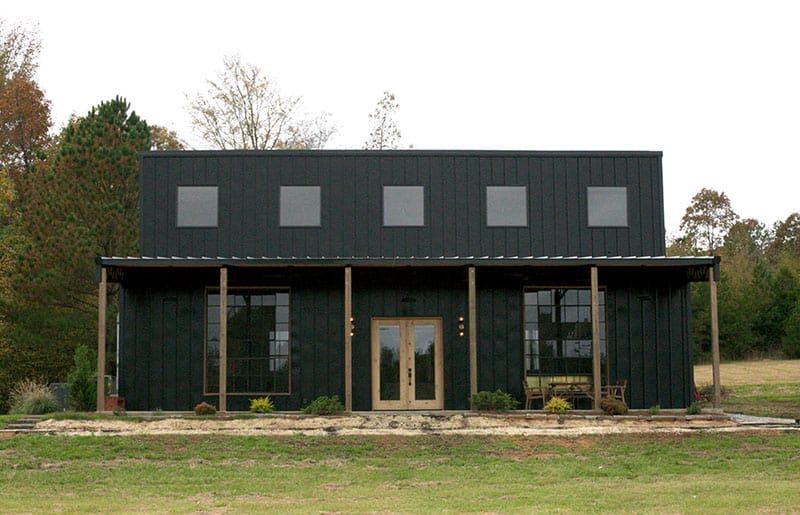
“There is a burgeoning craft spirits movement, and we wanted to be part of it. I thought about it and said ‘maybe this is it. This is the ball we’re looking to swing at.’”
While dreaming up their plan of passion, they met Harlow, who had long been interested in a distillery of his own. The three formed a partnership that began a year and a half ago. They hit the ground running and haven’t looked back.
“You only achieve your true potential doing what you’re passionate about,” Harlow said.
Though 18 months sounds quick, the three have been working around the clock to build their business and brand that is just weeks away from producing its flagship product. All three are working full-time at their distillery.
The first step was to tackle the federal and state licensure process. Then they needed to find a location.
They looked around Oxford and several other areas in Lafayette County before identifying an overgrown and unused pasture in Taylor. The location just felt right, and it allows them to build on their vision of making Wonderbird part of North Mississippi.
“This is not a vanity project for us,” Forster said. “We’re extending ourselves and bootstrapping this from the ground up.”
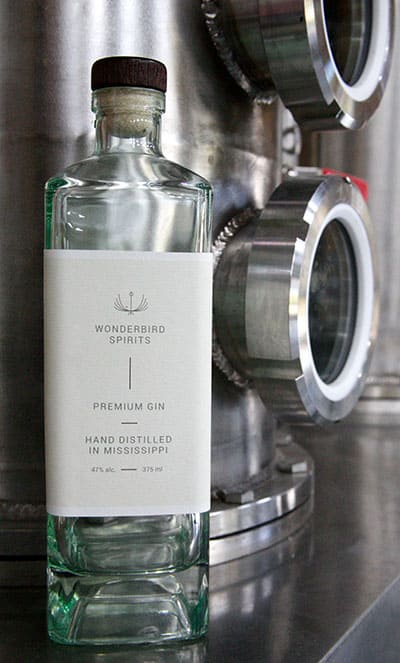
Everything about Wonderbird has the fingerprints of Forster, Alexander and Harlow. The group drew up the plans for the building and strategically laid out the interior of the distillery for operational efficiency. Massive steel contraptions line the back of the building and they’ll happily tell you about each one. When Wonderbird opens, it will offer 10-15 minute tours of the distillery, followed by a tasting.
“The public will be an integral part of our success, and we plan to be open a fair amount to offer tours and teach people about the distilling process,” Forster said.
First, the neutral spirit is created through the fermentation of raw materials. The evergreen taste of juniper is what makes a gin a gin, but the base of the spirit can be made from just about anything – corn, grain, potatoes, even grapes. Wonderbird will make its gin from Mississippi rice.
“Few gins are made from rice, so this is unique to the alcohol world and makes it easy to stay local,” Alexander said.
Their focus is to be as hyper-local as possible. They use rice from Two Brooks Farm in the Delta to develop their neutral spirit upon which they are building their gin.
Koji, used in many Japanese foods and liquors, breaks down the rice into simple sugars. The liquid is then pumped into a still where it goes through at least 20 distillations in a single pass. Wonderbird sends it through the still no fewer than three times to refine the final product.
While some distilleries have the neutral spirit shipped in and add the other ingredients, Wonderbird has decided to be a true grain-to-glass operation and make its own from scratch. Each botanical flavor is then added one at a time and distilled to call out the precise notes.
“It’s labor intensive, but it gives us better control of what comes out so we can have flavor consistency in our product,” Alexander said.
The entire process takes about a month.
So why gin? Well for starters, they all love it.
“You can be really creative with gin,” Harlow said. “With a lot of liquors, your creativity can be somewhat limited, but with gin, your options are almost limitless. We’re coming in at the height of the mixology movement and gin still represents a very small percentage of the market.”
Their goal is to develop a classic, world-class gin.
“The versatility of gin is unmatched in cocktail culture, and some of the oldest classic recipes are gin recipes,” Forster said.
While gin has become synonymous with the United Kingdom, it actually first originated in Holland. Forster said England adopted the spirit by giving it out as part of meal rations to naval soldiers. In fact, he said gin is part of the reason we have the concept of proof.
“Sailors wanted proof they were getting the good stuff, so they’d light a sample of it on fire. If it ignited, they had proof that it had a high alcohol content,” he said.
The best part about gin is they can put their own personal signature on it by adding Mississippi native herbs, roots and florals to the recipe to make it a true Mississippi gin.
“We spend our winter dreaming up seasonal summer cocktails and we spend our summer dreaming up winter ones,” Alexander said.
While Alexander did call up some organic chemistry from his undergraduate days, the group also went through formal distilling training. They attended a workshop in Portland led by international gin expert David T. Smith and master distiller Todd Buckley.
“They’ve been, in large part, our educators through this process,” Alexander said. “We really hit it off with them, and I think it’s because they see a little of themselves and how they started. We’re fully in and committed to doing this the right way.”
That commitment results in a lot of fine-tuning their recipe.
“We’re not in the market yet, but we’re breaking our necks to get there this quarter,” Forster said. “The last thing we want is to go to market without something we can be proud of. We all have very high standards and don’t want to put anything out there until we know it’s a really great product.”
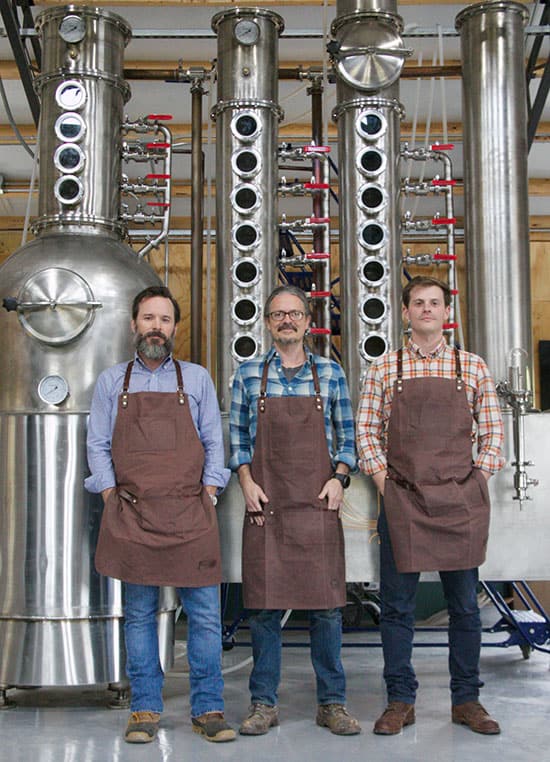
After visitors tour the facility, they’ll get a taste of Wonderbird’s flagship gin.
The tasting room overlooks the front porch through large, open iron-framed windows, originally taken from an old factory in Chicago. Paintings by local artist Carl Blackledge add pops of color to the rustic design and bring a touch of sophistication to the room. A 70-year-old piano previously owned by Forster’s grandfather-in-law sits along the far wall from the bar, and an old pew from Forster’s mother’s home in Louisiana acts as a bench for guests. Other chairs were repacked and refinished by the group.
Forster, Alexander and Harlow have built every part of this business with their hands, heart and soul, and every inch of the place reflects that.
“It’s a special place to us, and we hope customers also see it that way,” Forster said.
Wonderbird’s emblem is as classic as their product. The symbol was designed with the help of a graphic artist in California and reflects the influence of regional birds, Native American symbology and the group’s core value of optimism.
“We wanted Wonderbird to reflect a sense of inspiration and exploration,” Forster said. “It’s simple and not overly ornate, but we want it to stand the test of time.”
As you can imagine, the three like to end the day with a nice cocktail. Call it perks of the job.
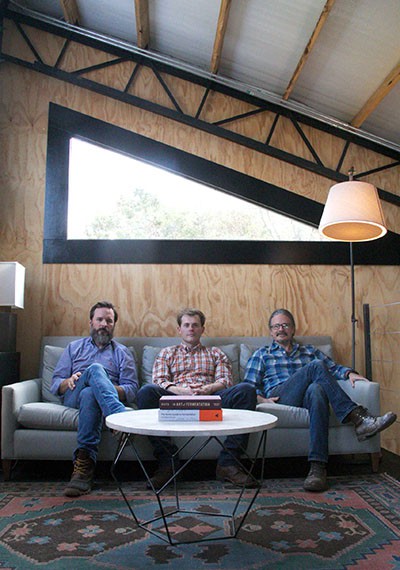
THE DETAILS
Location: 618 Old Taylor Road
Hours: Daily, noon to 6:00
Website: www.wonderbirdspirits.com
Projected opening date: April 2019
Instagram: @wonderbirdspirits
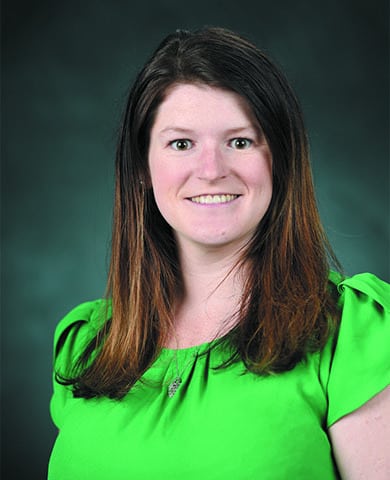
Christina Steube
Contributor
Christina is a staff member and instructor at The University of Mississippi. She has been writing news and feature stories for over 10 years and loves travel, food and photography.

Mike Stanton
Photographer
Mike is a portrait and documentary photographer whose work has been featured in books and publications including Rolling Stone, LA Times, The Oxford American, Garden & Gun, and Poets and Writers.








